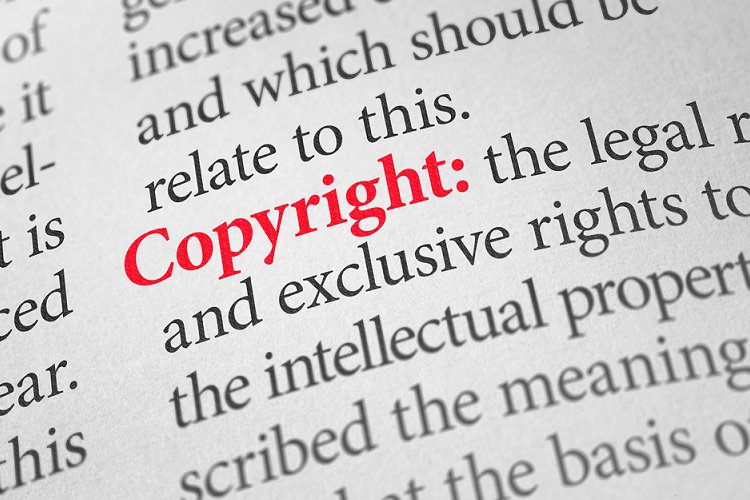Australian Copyright Basics

This article gives a general overview of copyright including what the term ‘copyright’ covers, who owns copyright, rights and infringement and international protection. It also offers some practical tips on how to protect your intellectual property in the event that proof of ownership of copyright is required.
What Is Copyright?
Copyright essentially protects an original idea in the tangible format that the creator has expressed it. In other words, copyright is the protection afforded to sufficiently creative work.
Examples of copyright works are literary, musical, architectural, artistic and dramatic creations as well as sound recordings, song lyrics, screenplays and computer software.
Copyright protects the creator against others reproducing, adapting or distributing their original work without permission.
Copyright applies to both published and unpublished content and as soon as a work is recorded in physical form (for example on paper or saved electronically), it is automatically protected by copyright. However, copyright does not protect the same or very similar idea from being expressed in a different way.
In Australia, copyright is automatic and free and unlike a trade mark and other forms of intellectual property, there is no need to register it. The original creator owns the exclusive right to reproduce or copy the work, publish it, display it in public, perform it and/or communicate the work to others.
It’s entirely up to you whether you display the copyright symbol © on your original work, but doing so does send a message that the material is protected by copyright.
Copyright is also separate from the actual work. For example, when a physical work such as a painting is sold or changes hands, copyright remains with the artist and is not transferred to the new owner.
Copyright generally lasts for the duration of the life of the creator, plus an additional 70 years thereafter.
Ownership of Copyright
As a general rule, copyright is owned by the person who created the original work.
There are however, several instances when copyright falls to someone or something other than the original author or where there is shared ownership of copyright.
These include situations where:
- an employee has created copyright works – in which case ownership falls to their employer
- an original film or sound work has been commissioned – in which case ownership usually falls to the person or entity which has paid for the works to be produced. Sometimes, a share in the copyright will fall to the people involved in producing the recordings.
- works are produced by freelancers, eg a freelance photographer. Copyright is usually owned by the freelancer, but the person or entity commissioning the work will also have the right to use and publish the work. However, these rights are limited to the purpose for which the work was commissioned.
Rights of a Copyright Owner
The rights of a copyright owner depend on the nature of the work.
Literary, Dramatic, Artistic and Musical Works.
The copyright owner has the right to reproduce the work in material form, publish it, make the work public, perform the work in public and make an adaptation of the work (eg compiling a new arrangement of a piece of music).
Films, Sound Recordings and Broadcasts.
The copyright owner has the right to make copies, show or play the work in public and communicate or transmit it to the public. The copyright owner can also rent out their original copyright in physical form, such as a CD or DVD.
International Copyright.
Australia is a signatory to a number of treaties and agreements which provide for international copyright protection to the original creator. In other words, protection is provided in other countries when the copyrighted work has originated in Australia and vice versa. However, some countries (such as the USA) will require copyright to be registered in order to take action against infringement.
What About Infringement of Copyright?
Copyright infringement happens when someone uses copyright material (or a key part of the material) in a way that only the copyright owner is allowed to do without first having obtained permission from the copyright owner.
That said, there are some instances when copyright material can be used legally without permission such as copying for research or study and copying for reporting news.
Copyright law is complex and if you suspect your rights have been infringed, or you are concerned about infringing a copyright owner’s rights, it is always best to get specialist advice.
In order to prove infringement, it is necessary to do the following:
- Establish ownership of legitimate copyright
- Provide evidence that the infringing party had access to the copyrighted work
- Provide evidence that shows a substantial part of the original work have been copied
How Is Copyright Ownership Proved?
It’s not always simple or easy to prove ownership of copyright. That’s because copyright does not require registration and there is no official ‘record’ of it.
The following actions may help prove copyright ownership should it ever be called into question or if action against infringers is required:
- Maintain dated records of your work from the outset of the creative process
- If appropriate, discuss your work with others from early on so that they bear witness to your original authorship
- Keep a copy of any agreement which refers to you being the owner of the copyrighted work
- Use the © symbol on your original works wherever possible
- Send yourself a copy of your copyright works by email or post. This won’t prove ownership, but can be helpful in showing the date on which you claimed ownership
To Conclude
Intellectual property law is a complex field and proving copyright ownership as well as proving infringement of copyright rights can be difficult. Should you have any questions or need assistance with a copyright or trade mark matter, you are welcome to get in touch with an affordable trade marks attorney at MMW Trademark Services.


